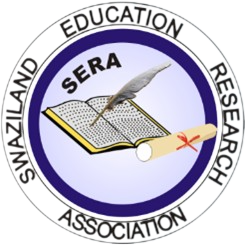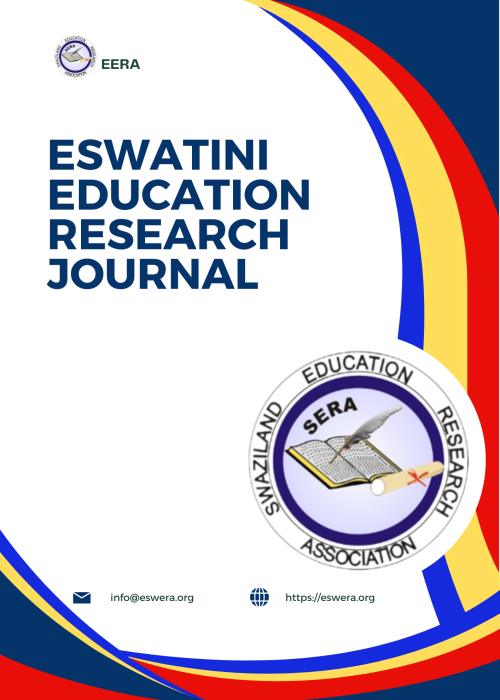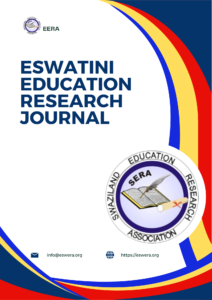
Eswerj
Eswatini Education Research Journal
about the journal
ABOUT
Eswatini Education Research Journal (ESWERJ)
Eswatini Education Research Journal (ESWERJ) is a peer reviewed journal published by Eswatini Education Research Association (EERA). It aims to provide a forum for information exchange about the education sector. It also strives to keep readers informed about changes in educational settings and creative solutions to problems in education. Besides, it strives to keep practitioners up to on the best global teaching and learning practices. It also provides an avenue for the dissemination of research-based knowledge on teaching, learning, and practices at all levels of education. The publication, which is available both in print and online, has a high impact factor.

Background of the ESWERJ
The Swazilland Educational Research Association (SERA; now EERA) is a member of the then Southern region Botswana, Lesotho and Swaziland (BOLESWA) Educational Research Association, which existed since 1987. Meanwhile, the Namibian Educational Research Association (NERA) joined in 2003, changing the name BOLESWA to BOLESWANA. The South African Educational Research Association (SAERA) whose members used to attend the BOLESWANA biennial conference also became interested for their association to be a member. The SAERA application was endorsed in 2016 in the biennial conference in Botswana. Today, the regional network’s name is Southern Africa Educational Research Network (SAERN).
The BOLESWA Educational Research Association created its own Journal, the BOLESWA Educational Research Journal (BERJ) in 1988. The main source of financial support for its review and publications among others, is the International Development Research centre (IDRC) and the Educational Research Network in Eastern and Southern Africa (ERNESA), with which the BOLESWANA was a member. The works published were mostly from its members and aimed at capacity-building of young scholars as well as shadowing by accomplished scholars. The funding landscapes changed, and IDRC and ERNESA funding ceased to exist, and the regional association BOLESWANA had difficulty of sustaining BERJ. Meanwhile, from the late 90s to early 20s, the Namibian Educational Research Association (NERA) and the Botswana Educational Research Association (BERA) created their own publication outlet, the NERA Journal, and the MOSENODI International Journal of Educational Studies, respectively. Also, SERA initiated its own journal, the Swaziland Institute of Educational Research (SIER), but the University of Swaziland then mainstreamed the journals that are associated with the University and it ceased to exist. LERA depended much on the BERJ for its members’ publications.
In 2023, the membership of EERA proposed to have its own Journal (ESWERJ). The Journal was envisioned as an online periodical that will publish original educational research, analysis, and/or interpretation of educational subject matter, at least bi-annually, and will be issued by its professional association, the Eswatini Educational Research Association (EERA). The articles to be published are those considered credible sources of knowledge written by scholars from educational institutions. The articles will be peer-reviewed by a team of editorial committee, whose main responsibility is to review the submitted articles based on the published Guidelines of ESWERJ.
About
ESWERJ
PURPOSE
The ESWERJ was formed to create an enabling platform for educational researchers to share knowledge and discuss recent research in education and related fields
AIMS AND OBJECTIVES
ESWERJ will be very important in making sure that educators are aware of the current trends, innovations and updated knowledge on a subject matter that they are teaching or learning. ESWERJ will specifically:
- Enhance educational knowledge by fuelling scientific curiosity;
- Demonstrate how to present and consciously self-critique information before it is published;
- Encourage inter-disciplinary opportunities, thereby building professional relationships and stronger networks; and
- Build on educational creativity and innovations.
Editorial Board
Editor-in-Chief
Professor Karen Ferreira-Meyers
Institute of Distance Education
University of Eswatini
Managing Editor
Dr Vincent Chidindu Asogwa
Agricultural Education and Extension
University of Eswatini
Office
Institute of Distance Education
University of Eswatini
Private Bag 4, Kwaluseni, Eswatini
Office Tel: +268 25170262

Editorial Board Members
- Dr Tsikati A. F. M. – Department of Agricultural Education and Extension, University of Eswatini
- Dr Samke P. Dlamini – Institute of Distance Education, University of Eswatini
- Dr Elmon J. Shongwe – Southern Africa NAZARENE University, Eswatini
- Associate Professor Chris Sola Omoregie – Department of Adult Education, University of Eswatini
- Dr Pereira L. – Department of Curriculum and Teaching, University of Eswatini
- Dr. Faremi Y. A. – Department of Educational Foundations and management, University of Eswatini
- Dr. Racheal Mafumbate – Department of Educational Foundations and Management, Faculty of Education, University of Eswatini
- Motsa Ncamsile – Southern Africa Nazarene University, Eswatini
Editorial Advisers/Consulting Editor
- Prof Mampane R. – University of Pretoria, South Africa
- Prof Ozioko R. E. – Department of Library and Information Science, Michael Okpara – University of Agriculture, Umuduke, Nigeria
Manuscripts
Researchers, scholars, teachers, administrators, specialists, and advanced graduate students are invited to submit manuscripts.
The journal aims to provide a forum for information exchange about the education sector. It also strives to keep readers informed about changes in Education settings and creative solutions to problems in education. Besides, it strives to keep practitioners up to on the best global teaching and learning practices. It also provides an avenue for the dissemination of research-based knowledge on teaching, learning, and practices at all levels of education. The publication, which is available both in print and online, has a high impact factor.

Membership
Membership is open to persons with an active interest in education research and who pay the annual subscription fees. A person desiring to join the association may lodge an application form with the Secretary. Such application shall be considered and decided upon by the Executive Committee
You can register with the Journal to contribute with articles by filling in the registration form and become a contributing author of the Eswatini Education Research Journal
Designed & hosted by Be IT Specialists